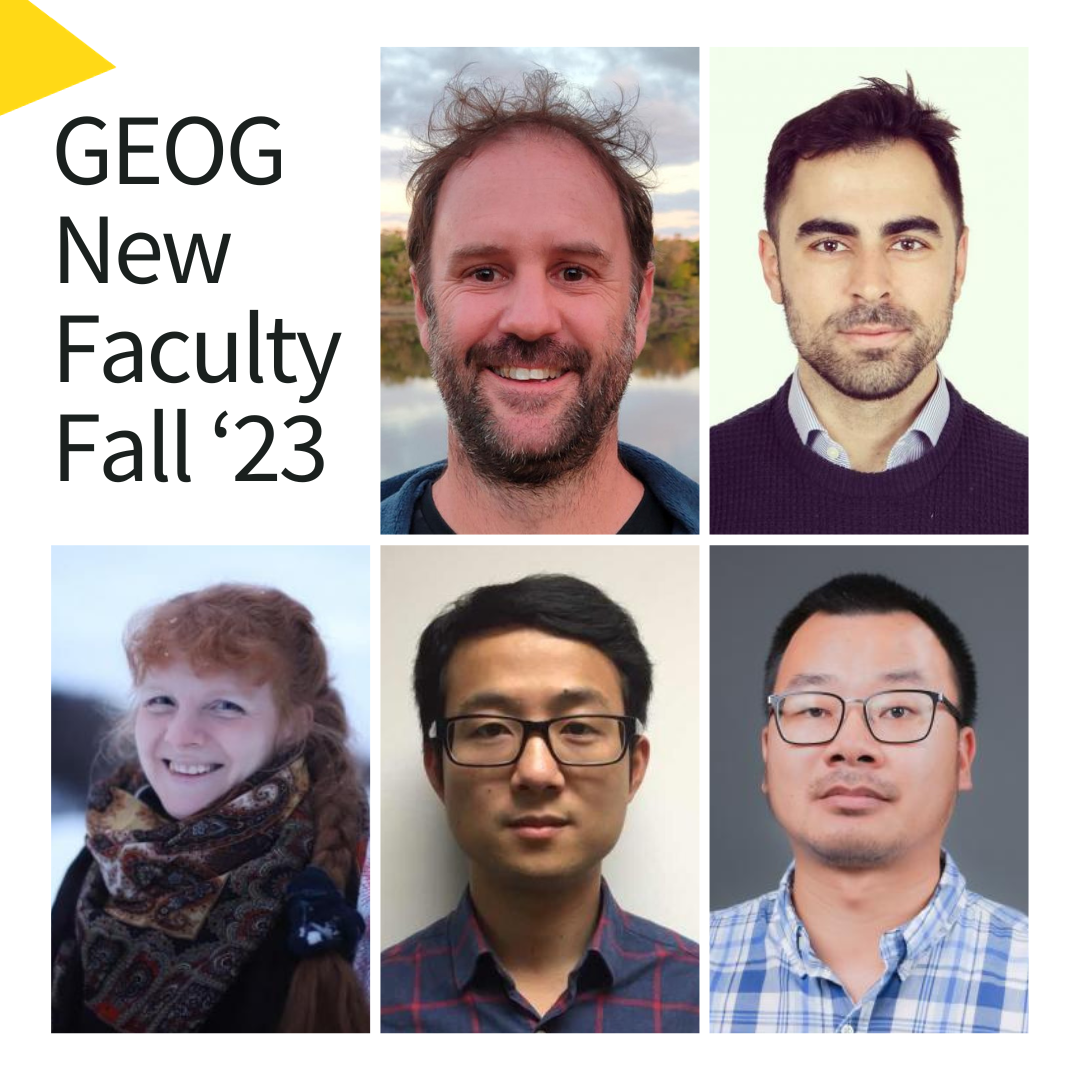The College of Behavioral and Social Sciences has introduced the talented new faculty members joining the college for the 2023–24 academic year. Among them, here are the new faculty at GEOG!

Assistant Research Professor Matheus Henrique Nunes
Matheus Henrique Nunes joined the Department of Geographical Sciences as an Assistant Research Professor and will contribute to the Global Ecosystem Dynamics Investigation (GEDI) mission and other activities in the Department of Geographical Sciences. His research focuses on understanding what determines the structure, diversity and function of plant communities, and most of his work uses remote sensing and field surveys to explore how forests respond to global change, including the effects of forest fragmentation, logging and climate change.
Nunes has been particularly interested in the use of LiDAR data to have new insights into the complexity of forest ecosystems, and how environmental variables and human disturbances can impact vegetation. His work as part of the GEDI team will include the use of GEDI information to characterise biodiversity and habitat heterogeneity.
He is a Brazilian forest engineer, and has received his PhD in Plant Sciences from the University of Cambridge in 2019, followed by a period as a postdoctoral researcher in the University of Helsinki.

Assistant Research Professor Anna Komarova
Anna Komarova grew up as a specialist in the non-government nature conservation movement in Russia. Throughout her scientific career, she has been primarily interested in implementing very powerful GIS and RS tools into conservation-related research and the development of solutions able to help save the environment.
She dedicated her MS and Ph.D. research to extremely high conservation value forests in North-West Caucasus combining the research (developing the syntaxonomy, understanding the spectral and radar-derived characteristics of the forest communities, and implementing the machine learning methods to the classification process) and conservation (developing the recommendations for sustainable forestry and methodological support of the conservation initiatives).
After Ph.D. she was a leader of a group of Moscow State University researchers aimed to investigate the processes of succession at abandoned lands in the transition area of Polistovsky National Reserve. They used Sentinel 2 and drone data to map the meadow communities and understand the spatial distribution and drivers of the number of associations to support the conservation of temperate-zone placor meadows.

Lecturer Xin Tao
Xin Tao received the PhD from the department of Geographical Sciences, University of Maryland at College Park. He received postdoc training in the same institution from 2015 to 2017. He is currently a lecturer with the same department. His research interests include forest disturbance mapping, biophysical variables based on remotely sensed data, and scaling effect.
Tao will be teaching GEOG 650: Mobile GIS, GEOG 657: Web Programming, GEOG 677: Web GIS, and GEOG 652: Digital Image Processing and Analysis.

Assistant Research Professor Lin Xiong
Lin Xiong is an Assistant Research Professor at the Department of Geographical Sciences in the University of Maryland, College Park. My research focuses on coastal and wetland ecosystems with remote sensing in the NASA GEDI Mission Team. Before joining UMD, he was a postdoctoral researcher at the Coastal Studies Institute, East Carolina University from 2021 to 2022. He got my Ph.D. in geophysics at the University of Houston in 2020. He has extensive expertise in utilizing terrestrial, airborne, and spaceborne lidar sensors to map forest structures, quantify carbon stocks, and monitor coastal erosion and landslides. Presently, he is working on the development of algorithms, data fusion, calibration, and validation for GEDI products.
Xiong is working in the GEDI mission team.


